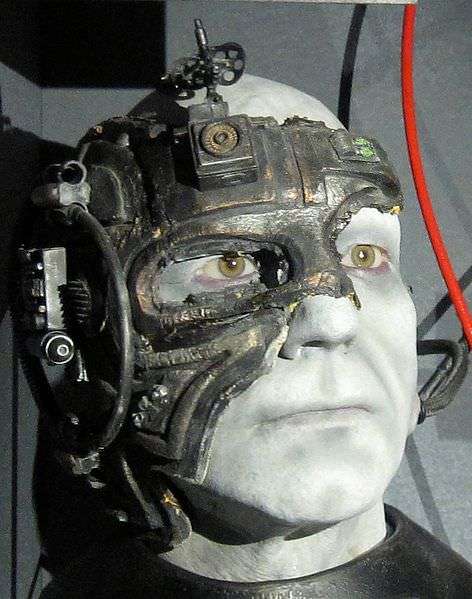Yes, Americans Are Politically 'Divided'—We're Not One-Policy-Fits-All Borg

Americans continue to see the country as sharply divided over political issues—but fewer of us see that as a bad thing, while growing numbers see a real upside in that division, according to USA Today/Bipartisan Policy Center polling:
The sharp political divide that Americans say they hate may be becoming the new normal.
A USA TODAY/Bipartisan Policy Center poll taken this month, the fourth in a year-long series, shows no change in the overwhelming consensus that U.S. politics have become more divided in recent years.
Well, of course there's political division in a nation of over 300 million people. We're not the damned Borg. If we didn't have strong disagreements over policies that reach deeply into our lives, that would be really weird. Recent years have brought us Obamacare, the surveillance state, and metastasizing federal spending, to barely scratch the surface. The fact that we so strongly perceive political polarization around us may have less to do with increasing policy disagreements than with the fact that so many one-size-fits-all solutions are jammed down our collective throats even though we're not, you know, a collective.
The most notable shift here is the move toward accepting and even celebrating America's political divisions. In just one year, the percentage of the population calling the divisions "a good thing" rose from 20 percent to 40 percent. The prepackaged rationale from the pollsters for the political divide being good is that it "gives voters a real choice." But, tellingly, USA Today quotes a man saying, "It helps stop bad policies."
In fact, blocking bad laws should be the priority for members of Congress, according to the poll—54 percent of Republicans and 51 percent of Democrats agree.
The Americans growing increasingly comfortable with a country that disagrees with itself are, after all, the same people who say that government is burdensome, who have little regard for federal employees, and who see big government as the greatest threat. Having been on the receiving end of the implementation of government policy and very much not liking it, Americans are painfully aware that many of their fellow countrymen want the government to do things that they themselves oppose.
What policies Americans define as "bad" certainly vary from individual to individual—differing definitions of good and bad policy are at the heart of that perceived political divide.
But Americans will always disagree with one another. The fact that we're growing content in that disagreement and see slowing and stopping the implementation of policy as a key goal for lawmakers is all the more reason to avoid top-down, centralized decisions that force one part of the country's population to suffer the detested policy preferences of another faction.


Show Comments (60)